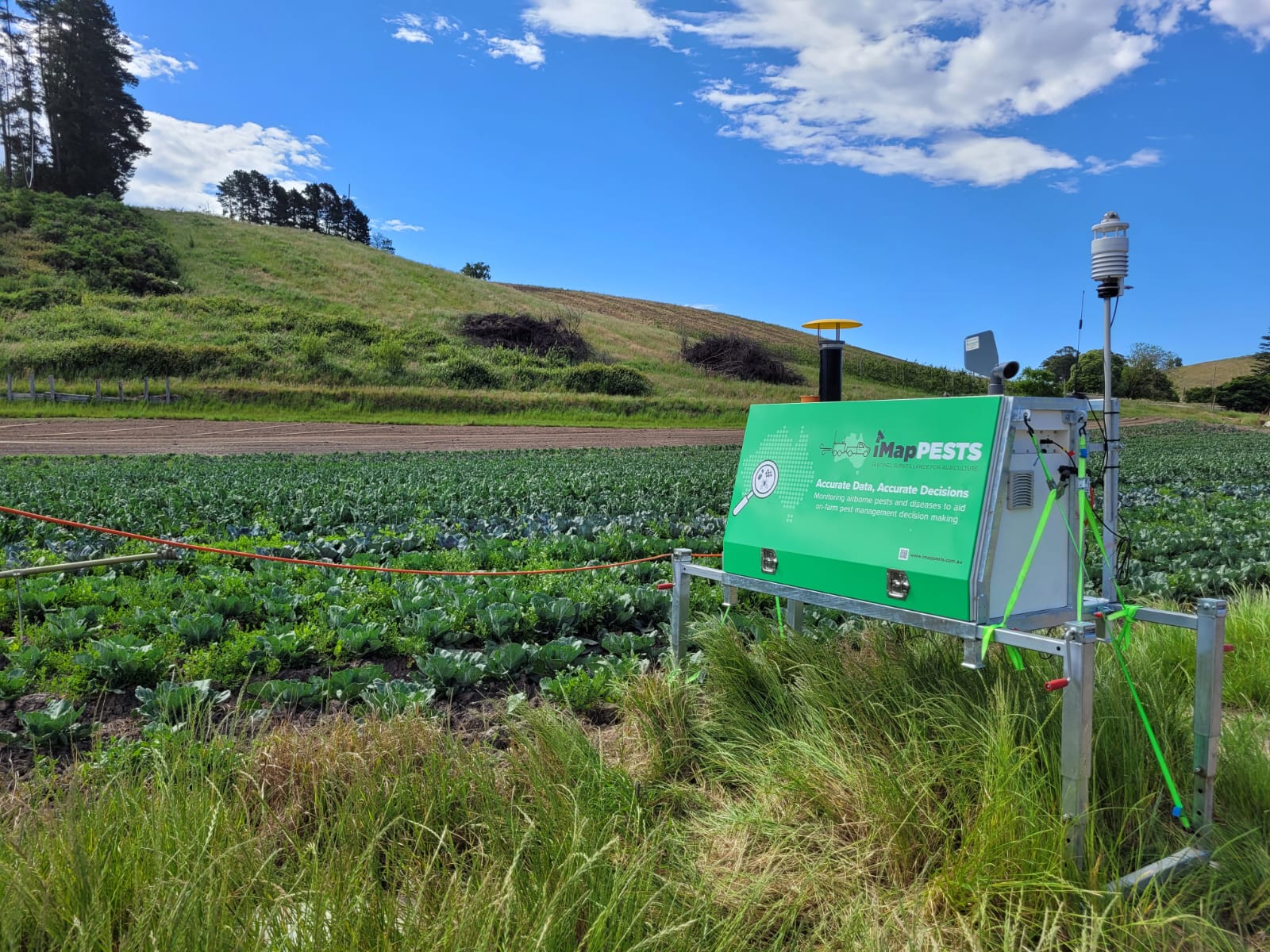Adelaide Hills alive & buzzing with two mobile plant pest surveillance units
The iMapPESTS team has finalised a trial of Sentinel 4 at Thorndon Park Produce in Virginia, South Australia.
The team have deployed the compact plant pest surveillance unit to Cobbledick Produce, in Adelaide Hills’ Uraidla, alongside a diverse range of vegetable crops, with cherries, strawberries and vineyards located nearby.
Sentinel 4 will be monitoring high priority, airborne pests and diseases, such green peach aphid, western flower thrips and the causal agent of white rot, Sclerotinia.
In addition, it will allow for a comparison between the data generated here and the data gathered out of the nearby Sentinel 2 trial at Gully View Fruits, Carey Gully.
The unit will be stationed in the area until early 2021, before moving onto growing regions beyond the South Australian border.
The iMapPESTS team will be reporting on what it finds through the program’s website.
Growers and agronomists who wish to be involved in the iMapPESTS program can register their interest either through the website or via iMapPESTS Engagement & Adoption coordinator Shakira Johnson at shakira.johnson@ausveg.com.au.
To learn more about the iMapPESTS program, read this article.
Acknowledgements
The iMapPESTS: Sentinel Surveillance for Agriculture is a five-year, $21 million-dollar research, development and extension (RD&E) investment. It is supported by Hort Innovation, through funding from the Australian Government as part of its Rural R&D for Profit program as well as investment from plant industry Research and Development Corporations (RDCs). In addition, in-kind contributions from national and international partner organisations have been received, including SARDI, Agriculture Victoria and Rothamsted Research (UK), to name a few.
Find out more
Please contact Engagement and Adoption Coordinator for iMapPESTS Shakira Johnson on 0433 937 564 or shakira.johnson@ausveg.com.au.
Further details can be found at the iMapPESTS website. You can follow the project on Twitter: @iMapPESTS.
Project Number: ST16010

